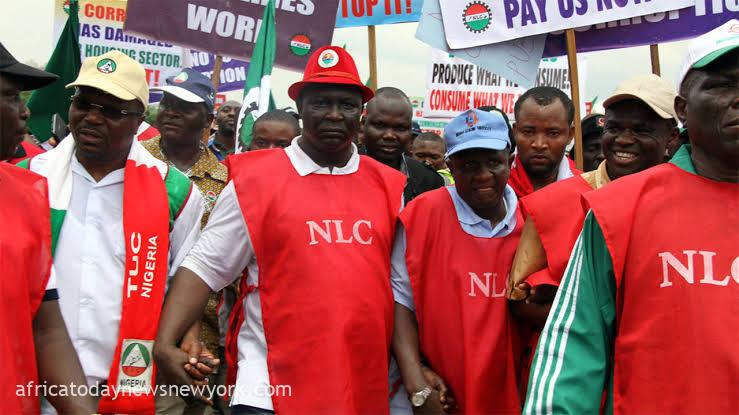The Nigeria Labour Congress (NLC) pushes back against the World Bank’s recommendation for the Federal Government to hike the pump price of petrol to N750 a liter, highlighting the potential for the bank’s proposal to inflame tensions in the country.
The NLC contends that the World Bank’s suggestion is an advisory fraught with mischief, aiming to disrupt not just the nation’s economy but also Nigeria’s long-term development aspirations.
NLC in a statement by its President, Joe Ajaero, titled ‘World Bank’s N750 a liter for Premium Motor Spirit is a threat to Nigeria’s economy,’
He argued that the nation is still wrestling with the challenges and distress caused by the recent upswing in the price of PMS, a move influenced by the guidance of the World Bank and its counterpart, the International Monetary Fund (IMF).
The statement reads ‘Nigeria Labour Congress, NLC, strongly condemns World Bank’s call for increased Petrol Price to N750 a liter in the guise of withdrawal of a non-existent subsidy which the President told the whole country during his May 29, 2023 inaugural speech that ‘subsidy is gone’
‘We vehemently reject the recent advice by the World Bank urging the Nigerian government to increase petrol prices to N750 per litre. The World Bank’s lead economist for Nigeria, Alex Sienaert, corroborated this unwarranted recommendation during a presentation in Abuja, reinforcing the need for the government to abandon its commitment to the people and embrace policies that only serve the interests of foreign entities.’
Read also: Next Minimum Wage Will Be Based On Cost Of Living – NLC
‘It is an advice laden with mischief and intended to destabilize not only the nation’s economy but also Nigeria’s long term development plans. It further demonstrates to doubting Thomases that the Bretton Wood institutions who are the arrowheads of the neoliberal school are not pro-poor but steeped in predatory policies that beggar the poor so that the rich will become richer.’
‘It is truly a shame that the World Bank has really shown itself to be an enemy of the Nigerian nation. Its continued grandstanding and generation on anti-poor policies and programmes have destabilized many countries of the South especially nations within the sub-Saharan region.’
‘The difficulties and suffering created by the last hike in the price of PMS which was a product of the advice of the World Bank and its sister institution; the IMF are still ravaging the nation destroying in its wake the nation’s industrial base and domestic manufacturing capacity which favours Western metropoles.’
‘We remind the government that Nigeria should not allow foreign entities like the World Bank and the IMF to dictate economic policies that are detrimental to the welfare of its citizens. It is imperative that our leaders look inwards, tapping into the vast resources and human potential within our nation to address challenges and formulate policies that genuinely uplift the standard of living for all Nigerians.’
‘The NLC stands firm in its conviction that foreign interventions, particularly those dictated by the World Bank and IMF, have a history of exacerbating economic disparities in third-world countries.’
‘We assert that it is not only impractical but truly immoral for the World bank to persistently advocate for policies that endanger the lives and livelihoods of citizens, imperiling our nation.’
‘It is crucial for the Nigerian government to prioritize the welfare of its people over external pressures. We call on the government to resist the temptation to implement policies that cater to the interests of international bodies, even at the expense of the well-being of its citizens.’
‘The World Bank is Globalist North in thoughts and actions and has little or no consideration for the Global South. It is a predatory institution which the Global North uses to justify its crimes against the South. It is almost single-handedly responsible for the ruination of the economies of countries of the global South for which it prescribes one fit solution for all their ailments.’
‘The history of the failure of World bank’s prescription all over the world is well-known. It therefore baffles us that such institution with such history of failure in the past; a track record of failed recommendations; would still have the courage to make prescriptions to a country that is one of its past victims.’
